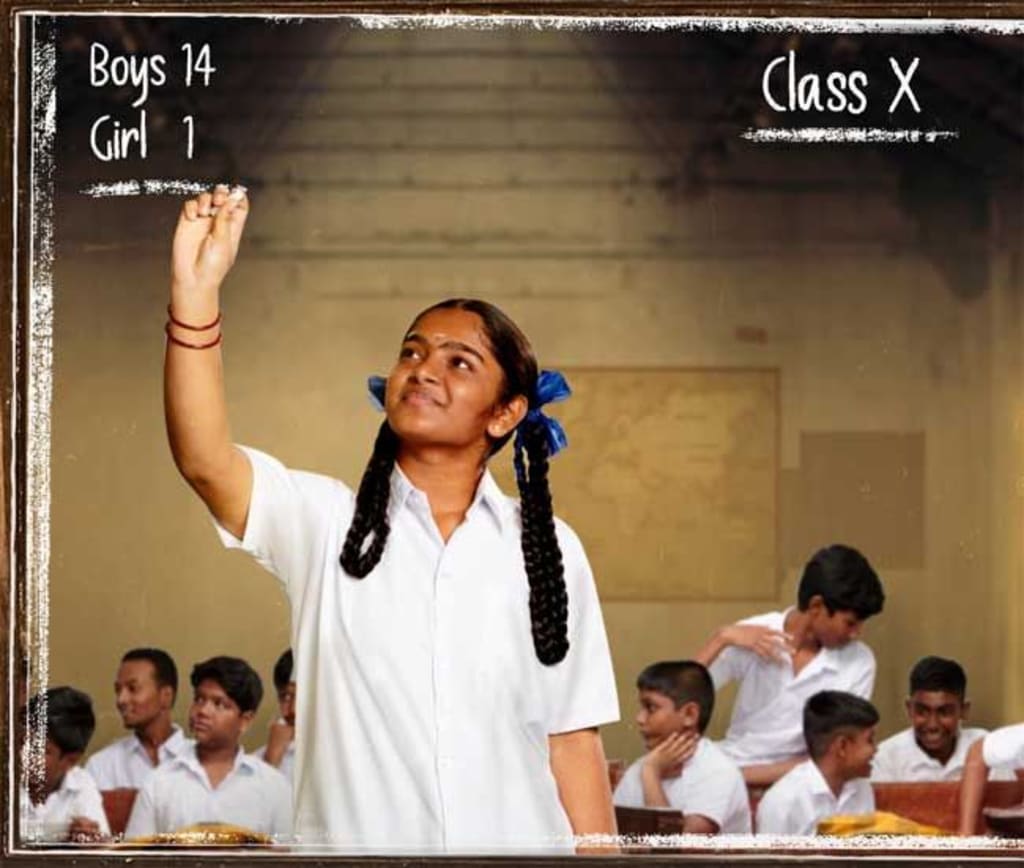Breaking the Taboo: Ayali Web Series Sheds Light on Harmful Practices of Puberty Ceremonies in Tamil Nadu.
Any form of ceremony is a power assertion. This power is associated with dominance and a lack of regard for women.

Ayali, a web series, was released a few days ago and has left many people thinking.
Ayali, a Tamil TV show that recently debuted on Zee 5, is set in a fictitious town where young girls are married off as soon as they get their first period. The show deftly addresses several issues surrounding menstruation and marriage, as well as the association of family honour with women's bodies, a practise that persists in contemporary Tamil society
The web series, is receiving critical acclaim for its portrayal of societal issues that often go unnoticed. The show highlights how patriarchal norms and customs can be harmful to young girls and women. The practice of marrying off girls as soon as they reach puberty is not only prevalent in Tamil Nadu but is also seen in other parts of India. This disturbing trend of child marriage is a violation of a child's rights and can lead to severe health problems, including early pregnancies, malnutrition, and domestic violence.
In many cases, young girls who are married off early are forced to drop out of school, denying them an education and a chance for a better future. Ayali delves into these issues and raises awareness about the importance of educating girls and empowering them to make their own choices. It encourages viewers to question the societal norms and customs that harm young girls and women and to promote gender equality.
Moreover, the show touches upon the stigma surrounding menstruation in many parts of the country. Many girls are forced to hide their menstrual cycles and are not allowed to participate in certain activities during that time. This can have a severe impact on their mental health and self-esteem. Ayali's portrayal of these issues is a significant step towards breaking the taboo surrounding menstruation and creating a safe and inclusive environment for young girls and women.
In Tamil Nadu, a girl's first period is celebrated with a variety of rituals based on caste and geographical location. Several women claimed that customs such as dousing the menstruating girl with turmeric water to 'purify' her (known as poo punitha neerattu vizha) were harmful.
A girl becomes aware of her individuality on the first day of her first menstrual cycle. She is told to keep her distance, keep her secret, and use angles or pads to keep her privacy. This can cause her to feel very self-conscious. At the age of twelve, children begin their period. A child becomes an adult for the same reason. Her entire adolescence is consumed by her menstrual cycle. This is happening month after month.
When a girl's first period is announced to her extended family, she often feels embarrassed. Furthermore, in some small towns and villages in Tamil Nadu, the aunts of the menstruating girl bath her after the poo punitha neeraattu vizha, regardless of her age.
The puberty ceremonies are a big deal here. Relatives from all over the state are informed of the "good news," and they all flock to the menstruating girl's home. A wedding hall is reserved, invitations are printed, banners featuring the new menstruator's image are displayed outside the ceremony location, and a lavish feast is prepared for immediate and extended family. Professional photographers are hired to capture the events, and the girl is dressed as a bride, given gifts, and blessed to be get married soon. The girl's thaai mama (maternal uncle) plays an important role in most rituals and is frequently the one who gifts the saree to be worn by the girl.
Puberty ceremonies are also used to notify extended family members that a girl has reached reproductive age, indicating to relatives that they must all look for suitable marriage alliances for her in the coming years. These ceremonies also announce which girl in the community should be kept an eye on in case she goes 'astray'. In either case, they celebrate a girl's reproductive capacity without considering her consent or ability to parent.
While a girl's period is widely celebrated, little to no attention is paid to her emotional well-being.
These traditional practices surrounding menstruation and puberty in Tamil Nadu can have harmful effects on a girl's mental and physical health. Many girls feel stigmatized and ashamed of their bodies, which can lead to anxiety, depression, and other psychological issues. Additionally, some of the rituals, such as the use of turmeric water or the communal bathing, can put a girl at risk of infection or other health problems. It is important for society to recognize the negative impact of these practices and work towards creating a more supportive and empowering environment for girls and women. Education and awareness about menstruation and reproductive health can play a crucial role in achieving this goal.
Right now, "the question is" whether these puberty festivals are necessary. Times have changed, and so have young women's attitudes. They have more exposure and educational opportunities. They have the ability to think for themselves and express their needs, so they should consider whether these festivals are necessary for them. They must understand that no obstacles are required to ensure women's rights.
It is important to recognize that these puberty ceremonies have their roots in cultural and religious traditions. However, as society evolves, so should our attitudes towards such traditions. It is crucial to shift the focus from celebrating a girl's reproductive capacity to promoting her overall well-being and autonomy. We must ensure that these ceremonies do not perpetuate harmful gender stereotypes or restrict a girl's choices in life. It is time to rethink the purpose and meaning of these ceremonies and ensure that they align with our values of gender equality and respect for individual autonomy.
"Any form of ceremony is a power assertion. This power is associated with dominance and a lack of regard for women."
About the Creator
Mahalakshmi
I am the protagonist of the tale, and I want to organize and give form to the ideas that pop into my head.






Comments
There are no comments for this story
Be the first to respond and start the conversation.